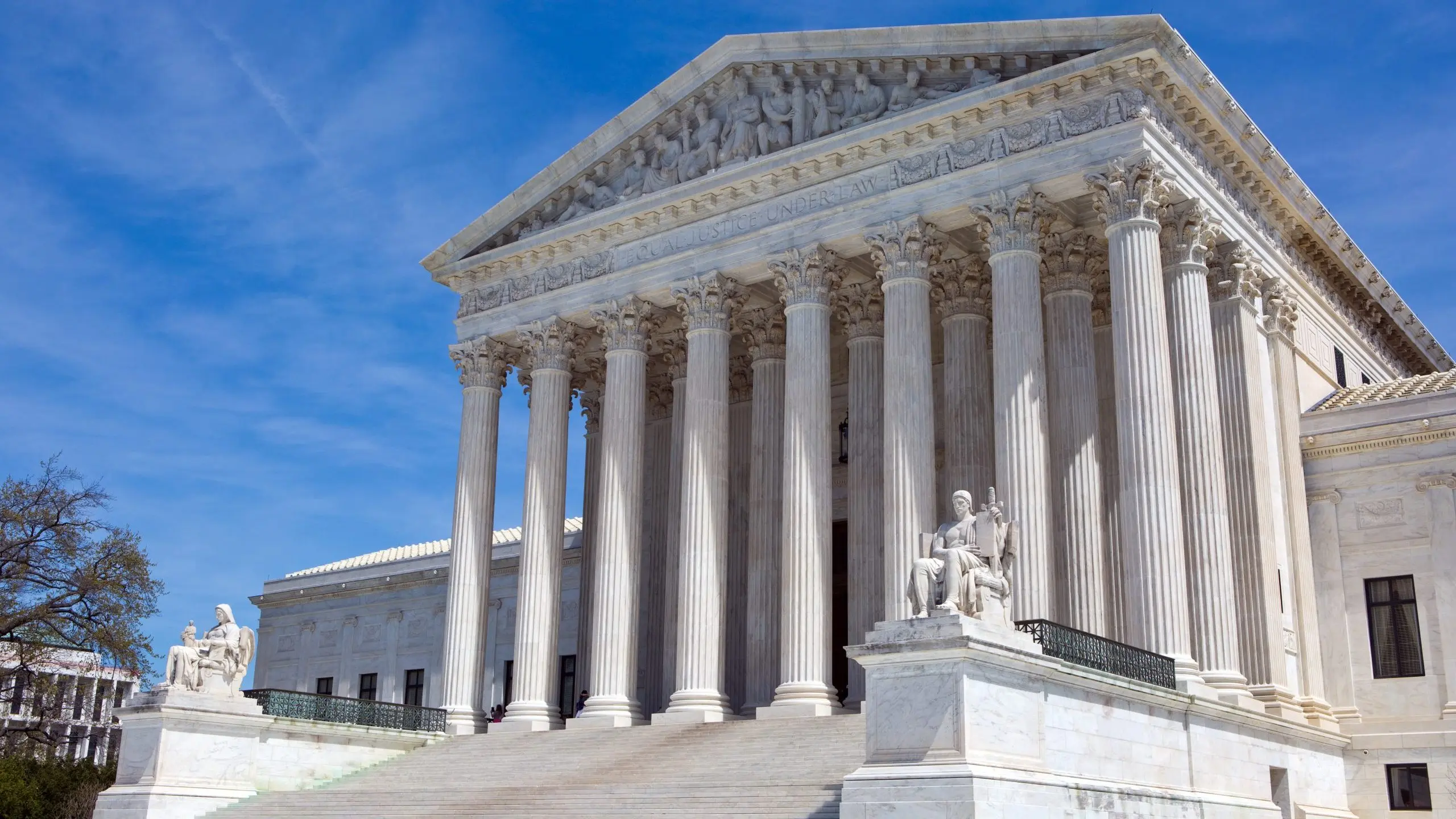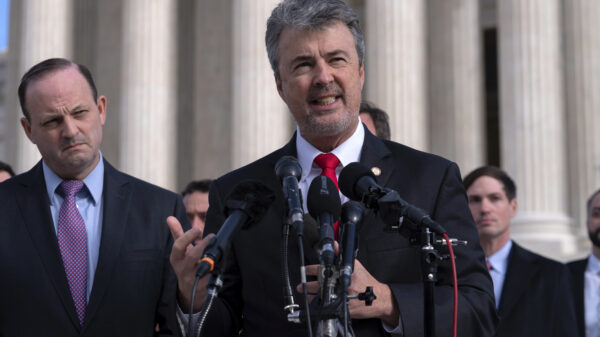The Brennan Center for Justice invited legal experts, including an Alabama law professor, to reflect on recent U.S. Supreme Court rulings during an online panel Wednesday.
The organization’s Supreme Court Term in Review panel was moderated by Alicia Bannon, the director of the Brennan Center’s Judiciary Program and Kohlberg Center on the U.S. Supreme Court.
The roster of panelists consisted of University of Alabama Distinguished Professor of Law and former U.S. Attorney for the Northern District of Alabama Joyce Vance, as well as ACLU National Legal Director Cecillia Wang and University of Baltimore School of Law professor Kim Wehle.
Panelists were asked questions regarding the lasting impacts of the Supreme Court’s 2024-25 term, which concluded on June 27.
Panelists opened their discussion by reflecting on Trump v. CASA, a case in which plaintiffs challenged U.S. President Donald Trump’s Executive Order 14160—an order that seeks to end birthright citizenship for individuals born in the United States whose parents were unlawful or temporary residents of the U.S.
While the Supreme Court’s ruling did not weigh in on the issue of birthright citizenship, it ruled in a 6-3 majority that the use of universal injunctions, such as those three district courts used to halt the nationwide implementation of Trump’s executive order, were an “inappropriate form of relief.”
The court also ruled the executive order regarding birthright citizenship will not go into effect on July 27.
Wang was asked to describe legal precedent regarding nationwide injunctions, as well as how the case will impact future judicial checks on executive actions.
“The issue of whether nationwide or universal injunctions are proper under federal law is a procedural issue that doesn’t align neatly with ideology,” Wang said, pointing out that universal injunctions have been criticized both on the right and the left.
Wang said, since the court’s ruling primarily relates to the issue of universal injunctions, legal pathways still exist to challenge the order, especially since restructuring birthright citizenship would be a far-reaching shift in legal precedent, with the specifics of the executive order’s implementation not yet detailed.
“They sent these cases back to the lower courts, and I think, theoretically, the lower courts could simply enter the same nationwide injunctions and simply give more reasoning to explain why that is needed for these 22 states and other plaintiffs in the case,” she said.
The Supreme Court’s decision in Trump v. CASA has been celebrated by Alabama Republican leaders such as Alabama Republican Senators Katie Britt and Tommy Tuberville; U.S. Representative Robert Aderholt, R-Alabama; and Alabama Attorney General Steve Marshall.
Vance spoke on another case from this term: Medina v. Planned Parenthood, in which the Supreme Court ruled that a South Carolina woman does not have legal standing to bring a lawsuit against the state for excluding Planned Parenthood from its Medicaid program.
“I view Medina v. Planned Parenthood as one of the sort of quiet blockbusters this term. It didn’t initially get a lot of notice. I think it will have a lot of play for all of us frankly in years to come,” Vance said.
Vance pointed out how, in states that restrict abortions, Planned Parenthood provides other medical services that may now be rendered unavailable to Medicaid recipients.
“They are providing primary care for patients and many patients choose them, especially people who are low-income or in underserved areas where they may be the only choice, the best choice,” she said.
“These patients are being told you can no longer have the provider of your own choice. Even though the law guarantees you that right, we the Supreme Court are going to strip away your ability to sue to enforce it,” Vance continued.
Vance argued the court’s ruling that South Carolina’s Medicaid policy did not violate Medicaid’s Any Qualified Provider provision reflects conservative justices’ tendency to flout precedent and provide narrow readings of the law in order to restrict abortion access.
“This is a part of the Supreme Court’s special jurisprudence when it comes to abortion. They sort of twist themselves into law and precedent defying pretzel logic in order to restrict women’s access to abortions, or even in a case like this—not abortion, just punishment for an abortion provider,” Vance said. “It’s a ruling that elevates culture wars to the status of law.”
Aderholt championed Medina’s ruling in a post on X.
“This is a win for life and a win for taxpayers,” the congressman wrote. “The American people should not have to fund partisan political organizations, like Planned Parenthood, that’s primary business is performing abortions.”
Vance went on to discuss the Supreme Court’s increasing reliance on its emergency docket, or what Georgetown University law professor Steve Vladeck coined, “the shadow docket.”
“It’s really nothing sinister. It’s the court’s emergency docket for handling cases or motions or matters that require an immediate decision,” Vance said. “The problem is that increasingly, in recent years, the court has shown a willingness to take cases that are in a very preliminary posture, like a case where a judge grants an injunction. That’s not something that happens after full development of the facts and law in the case. It’s just an early effort to press the pause button so the litigation can get underway.”
“This isn’t the court’s traditional docket, and we get justices issuing decisions almost always without signed opinions, without sometimes any opinion at all,” she continued.
Vance went on to warn about how reliance on the shadow docket may upend court transparency.
“Expanded use of the shadow docket to make what in essence are substantive decisions without full briefing and without full opinions, ends up undermining the rule of law and transparency, which are essential to democracy,” Vance said.
Panelists also discussed United States v. Skrmetti, a case in which the Supreme Court ruled in favor of a Tennessee law prohibiting the use of hormone treatments and puberty blockers for transgender minors, as well as Mahmoud v. Taylor, in which the court ruled in favor of Maryland parents who wished to opt their student out of LGBTQ+ inclusive curriculum.
“In short, SB1 took away essential healthcare for our three clients who are trans teens in Tennessee and their parents,” Wang said. “These families had consulted over a long period of time with their physicians and determined that this was necessary medical care.”
Wang also pointed out that the bill permits the same treatments for minors in order to affirm the sex they were assigned at birth.
“I do want to say that this is a mitigated disaster, not an unmitigated disaster, because there’s a silver lining in that the court did not reach out and say that discrimination against transgender Americans has a different constitutional standard than other forms of discrimination,” she continued. “Instead, the court saved that, left it for another day which means that all of our other cases defending the basic equal rights of transgender Americans will proceed.”
Marshall has championed Skrmetti’s ruling.
“Until a few years ago, the notion of providing sex-change procedures to children was practically unthinkable,” the attorney general wrote in a press release responding to the case’s verdict.
“I applaud the Supreme Court for recognizing that state governments have the authority and responsibility to regulate medicine in the face of medical interest groups that have placed radical gender ideology over evidence-based medicine and patient welfare,” he continued.
Aderholt, meanwhile, has come out in favor of the court’s ruling in Mahmoud.
“The Supreme Court’s decision in Mahmoud v Taylor reaffirms that respecting parental rights is not only lawful, but essential to preserving both parental rights and religious freedom,” Aderholt wrote.












































